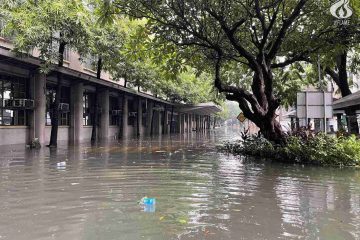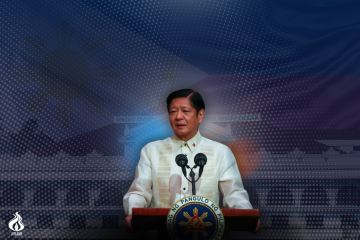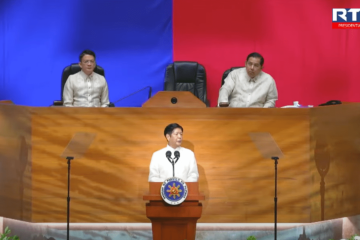
UNIVERSITY STUDENTS and members of religious communities gathered in the University of Santo Tomas (UST) to discuss the state of poverty in the country and the efforts being done to combat it in an international conference held Feb. 26 to 27.
Rev. Fr. Virgilio Ojoy, O.P., Ph.D. cited Pope Francis’ call to the Church in the Philippines “to combat the causes of the deeply-rooted inequality and injustice which mar the face of the Filipino society.”
“He (Pope Francis) urged us to be present to those who are living in the midst of the society burdened by poverty and corruption, are broken in spirit, [are] tempted to give up, to leave school and to live in the streets,” Ojoy said.
Ojoy believes there is a need to look at the global forces that cause poverty and examine the particular societies or persons who contain “the seeds of destitution” in order to understand the problem of poverty.
He said, however, that these efforts only address the symptoms of poverty rather than its causes. “As a result, while so much effort and resources are spent for the poor, the problem of poverty only gets worse.”
The income distribution of households in the Philippines does not warrant a significant upward mobility and the consumeristic and capitalistic urban lifestyle adversely affects the poor living in cities, he added.
Meanwhile, Fr. Daniel Franklin Pilario, C.M., Ph.D., dean of Adamson University’s St. Vincent School of Theology, expressed his concern over the number of Filipino youth dropping out of school.
The graduate of the UST Central Seminary cited the top three reasons for leaving school, namely lack of personal interest, high cost of education, and the need to look for work. “The economic reasons are understandable. However, the lack of personal interest in schooling, which is the highest factor, is enigmatic for me. Why are children not interested when in fact elementary and high school education [are] free?” Pilario said.
Furthermore, Ecclesiastical Faculties faculty secretary Asst. Prof. Joel Sagut, Ph.D. tackled the prioritization of the welfare of the poor as a Catholic social principle.
Sagut said the Church aids the marginalized sector by serving as their proxy and calls on its people to help and empower the poor “so they could be at par with the rest.”
He added that charitable acts become true and effective when people are able to empower communities.
“I think that’s the reason why the Community Development Office […] are really trying see to it that when we visit communities we empower them because that’s one part of preferential option for the poor,” he added.
The 3rd International Conference on the Sacred, the State and the Poor: Challenges/Gaps, Initiatives and Cooperations in Engaging the Habitus of Poverty was spearheaded by the Philippine Association for the Sociology of Religion together with the Commission on Higher Education and the UST Sociological Society and Political Science Forum. F CHRISTIAN DE LANO M. DEIPARINE



